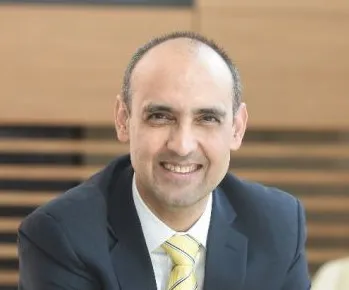Emmanuel Macron organized a top in February about artificial intelligence in Paris. The meeting was advertised as an opportunity to speed up the development of technology, while they ensure that “nobody is left behind”.
The French president urged Europe to “again synchronize with the rest of the world” on AI. The official statement that was mentioned from the top, in which international administration was mentioned, was even signed by China.
But the US and the UK have not signed the official statement. JD Vance, the American vice-president, warned against “excessive regulations” that could suppress innovation. Broadly speaking, the French view is that the technology must be “safe, safe and reliable”, which emphasizes the need to limit the risks of using AI-while Vance accused world leaders of being ruled by rules and wanting to “strangle”.
Whatever side you are on when it comes to the spit of the regulations, it is clear AI safety and the regulation of this new technology are the focus of a large part of the reporting. And it should be, it is an important topic.
As a leader in the use of AI in original, service and payments, you would expect Target Group to call on the industry “to throw off the legal forced bykien”. You would be wrong. Although we admit that there are an alternative costs for regulations that can reduce the scope for innovation, our opinion is that it is a nuanced subject.
We work in financial services that are already a highly regulated environment. There are risks with poorly trained AI that produce poor results for customers; We understand that when the AI is used in our space, it must be safe.
So, instead of evoking fewer regulations, we would like to see that the regulations are of feet and catches technological progress faster – regulation that evolves faster. This is still somewhat self -service. After all, our customers do not want to invest in bleeding-edge AI until they have clear regulations for their use. Given the urge of the government to growth due to regulations, the FCA should take that seriously.
When it comes to AI rules, our most important concern is that the mortgage market understands that regulations (of any species) are here for the long term. This means that all lenders, external serviceers or brokers who want to embrace and implement AI, keep pace with changes in the regulation.
It is a rapidly changing field and we spend huge means to keep pace. Fortunately we are part of the Tech Mahindra Group and we have access to the combined talents of 147,000 colleagues worldwide, so we are in a good position to do that. We did it.
Although in the course of the last decade the AI is improving a growing concern that progress in the field is now dangerously fast, there is no consensus about what should be regulated. Or how. Or by whom. Does the technology itself require rules, or only its applications? What exactly are the risks of artificial intelligence?
There are certainly enough “AI-Doomers” that are there (not in the least Elon Musk), but I am not so concerned about a war in catastrophic Terminator style against the machines. I am worried about the threat of bias and discrimination with small language models, for example.
At the moment, the AI ethical camp certainly has the ear of European policy makers. As an example, the AI Act of the EU, the world’s first extensive AI legislation, was taken into effect last year. It is usually a product safety document that controls the applications of technology based on how risky they are.
That sounds great, but the action is extremely strict. A startup that offers an AI-tutoring service must set up risk management systems, perform an impact assessment and undergo an inspection and jump through other hoops. You can see how easy, without expert guidance, a lender can easily come there a cropper.
Since AI continues to reform the mortgage market, it will be for the legal changes for industrial players for industry, and collaborating with experts will be the key to guarantee both innovation and compliance.
Uday Bola is head of solution design at Target Group


